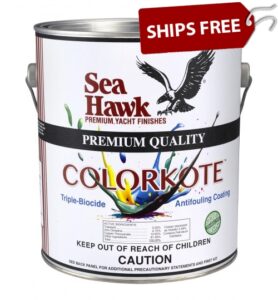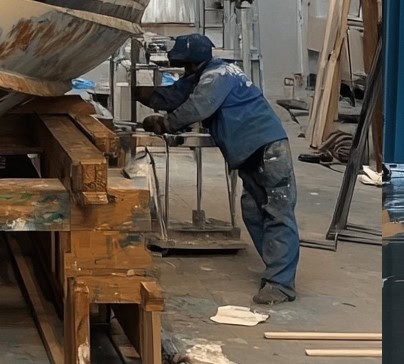Whether you’re a seasoned sailor or a weekend warrior, keeping your boat’s hull in shipshape condition is essential. But should you grab a paintbrush and do it yourself, or leave it to the pros? Let’s dive into the pros and cons of each approach to help you decide the best route to smooth sailing.
Option 1: DIY Bottom Painting
The do-it-yourself (DIY) route has one big advantage: it’s easier on your wallet. Professional services can be pricey, so if you don’t mind getting a little paint on your hands (and maybe in your hair), DIY bottom painting might be the way to go. Here are the main things to consider:
Pros of DIY
- Cost Savings: The cost of professional bottom painting can make a boat owner clutch their wallet. By doing it yourself, you’re paying only for materials—not labor. This is ideal if you’re on a budget or just enjoy saving money.
- Flexible Timing: With DIY, you’re on your own schedule. No waiting for an appointment; you can just grab your supplies and get to work.
- Satisfaction: Nothing beats the sense of accomplishment that comes from a job well done. Plus, you can brag about it to your fellow boaters.
Cons of DIY
- Time-Consuming: Bottom painting is no quick Saturday afternoon project. You’ll need to prep, sand, prime, and apply multiple coats. Plan for several hours (or days) of hard work.
- Skill Required: Applying bottom paint isn’t as simple as painting your fence. If you don’t follow the steps properly, you could end up with a patchy finish that’s less than effective at keeping marine growth at bay.
- Potential for Mess: Paint splatters happen. And antifouling paint is notoriously sticky and difficult to clean up, so prepare to sacrifice a pair of pants to the cause.
DIY Checklist
If you’re going the DIY route, here’s a quick checklist for success:
- Choose the Right Paint: Ensure you have the right type for your boat’s material and the waters you frequent.
- Prep the Surface: Sand and clean the hull meticulously. Any dust or dirt can mess with the paint’s adhesion.
- Apply Even Coats: Don’t rush. Multiple thin layers work better than one thick, drippy coat.
- Give It Time to Cure: Don’t splash in right away; let it dry fully.

The next-generation hull coating built with Sea Hawk DNA. Incorporating self-polishing, triple biocide, low-leaching chemistry, vibrant colors, and multi-season performance.
Option 2: Professional Bottom Painting
If DIY sounds like a nightmare or if you’d rather spend your time elsewhere, then hiring a professional service might be your best bet. But let’s weigh it out:
Pros of Hiring a Pro
- Professional Results: Pros know the ins and outs of hull prep and paint application. They can achieve a smoother, more even finish, which means better protection for your hull.
- Time-Saving: Instead of spending a weekend covered in paint, you can be out enjoying life (or watching others paint boats).
- Warranty or Guarantee: Many professionals offer a warranty on their work, giving you peace of mind that the job is done right.
Cons of Hiring a Pro
- Higher Cost: Quality comes at a price. Expect to pay significantly more for a professional job than a DIY project.
- Scheduling Issues: Boat yards can be busy, especially as the boating season winds down. You might need to book well in advance.
- Limited Control: You’re handing off control of the process, so if you’re the type who likes things “just so,” this could be tough.
Tips for Choosing a Reputable Pro
- Read Reviews: See what other boaters have to say about the professional.
- Ask About Experience: A seasoned painter will know the specific needs of your boat.
- Get a Clear Estimate: Make sure you know exactly what’s included in the cost.
To conclude
Whether you’re up for the challenge of a DIY or would rather let the pros handle it, bottom painting is essential for keeping your boat in prime condition. DIY saves money and provides that “I did this” satisfaction, but it requires time, effort, and some skill. Hiring a pro gets you a guaranteed, high-quality result. Ultimately, it’s about your budget, patience level, and how much you enjoy a good DIY project.
So grab that brush or call your local expert and get ready for next season! And hey, maybe take a before-and-after picture—you’ll want proof of that gleaming hull, no matter how it got that way.

